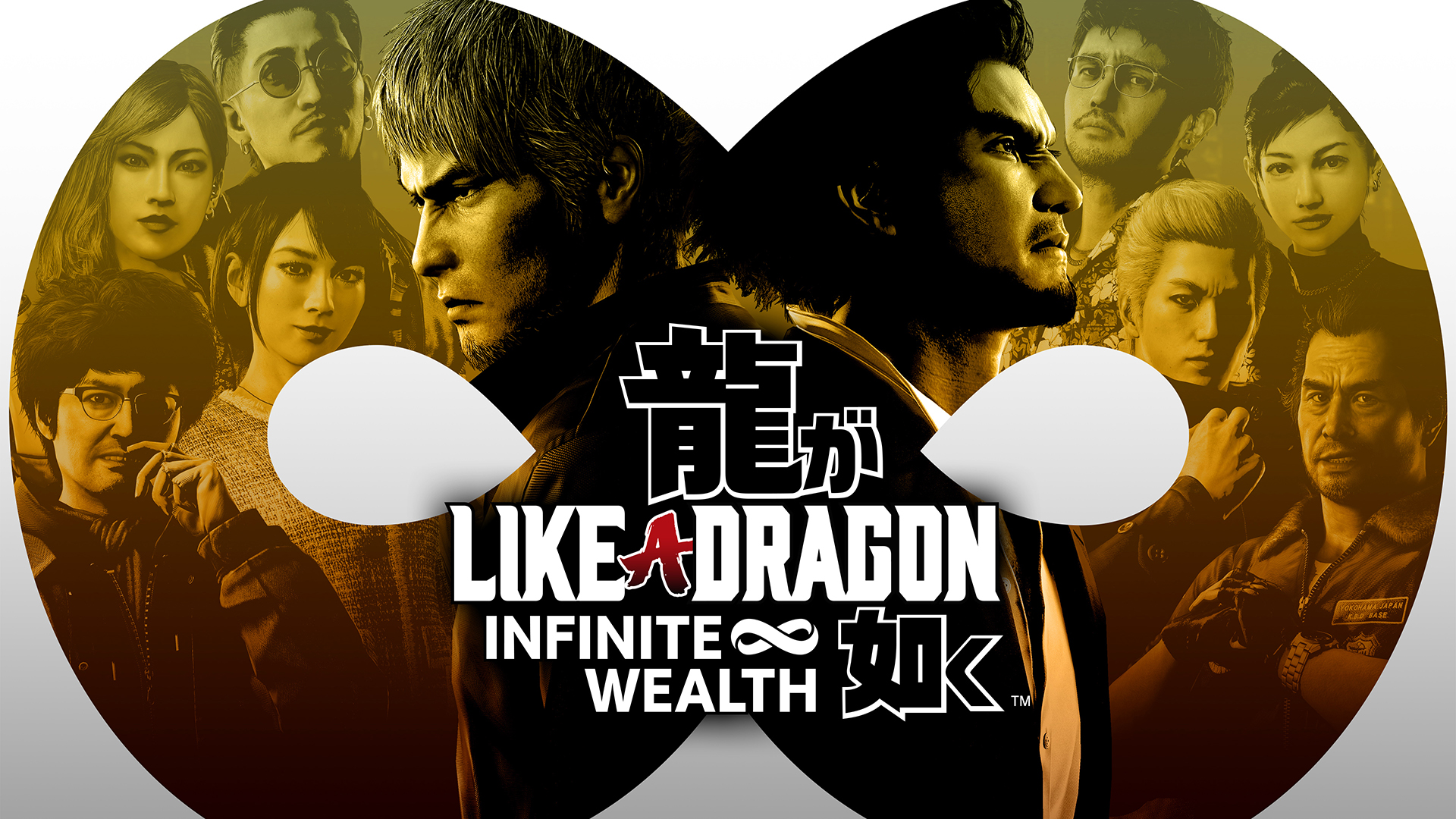Yakuza: Like A Dragon was a turning point for the franchise. While it continued the traditional beat ’em up action with the spin-offs like the Judgement games and Like A Dragon Gaiden, the mainline titles would shift genres and become a full fledged turn-based JRPG. For some, this was the death of the franchise, but others found it a breath of fresh air and was what the series desperately needed.
Kasuga Ichiban proved to be a worthy successor to Kazuma Kiryu. He was dramatically different, yet was also more relatable than the stoic and cool-headed ex-thug. Kasuga’s journey was a fall from grace. His loyalty was put to the test and when he came out the other side, he grew up a little bit and learned what family meant. His love for Dragon Quest fueled his delusional bravery to combat injustices and corruption.
Now that the franchise has found new life as a turn-based RPG, Kasuga’s story continues. Old enemies become allies, old friends return, revelations compound upon each other, and the hero of Yokohama once again hits bottom… but this time on the shores of Honolulu, USA. What has Kasuga Ichiban gotten himself into this time? Find out in this Like A Dragon: Infinite Wealth review!
Like A Dragon: Infinite Wealth
Developer: Ryu Ga Gotoku Studio
Publisher: Sega
Platforms: Windows PC, Xbox One, Xbox Series X|S, PlayStation 4, PlayStation 5 (reviewed)
Release Date: January 25, 2024
Price: $69.99 USD
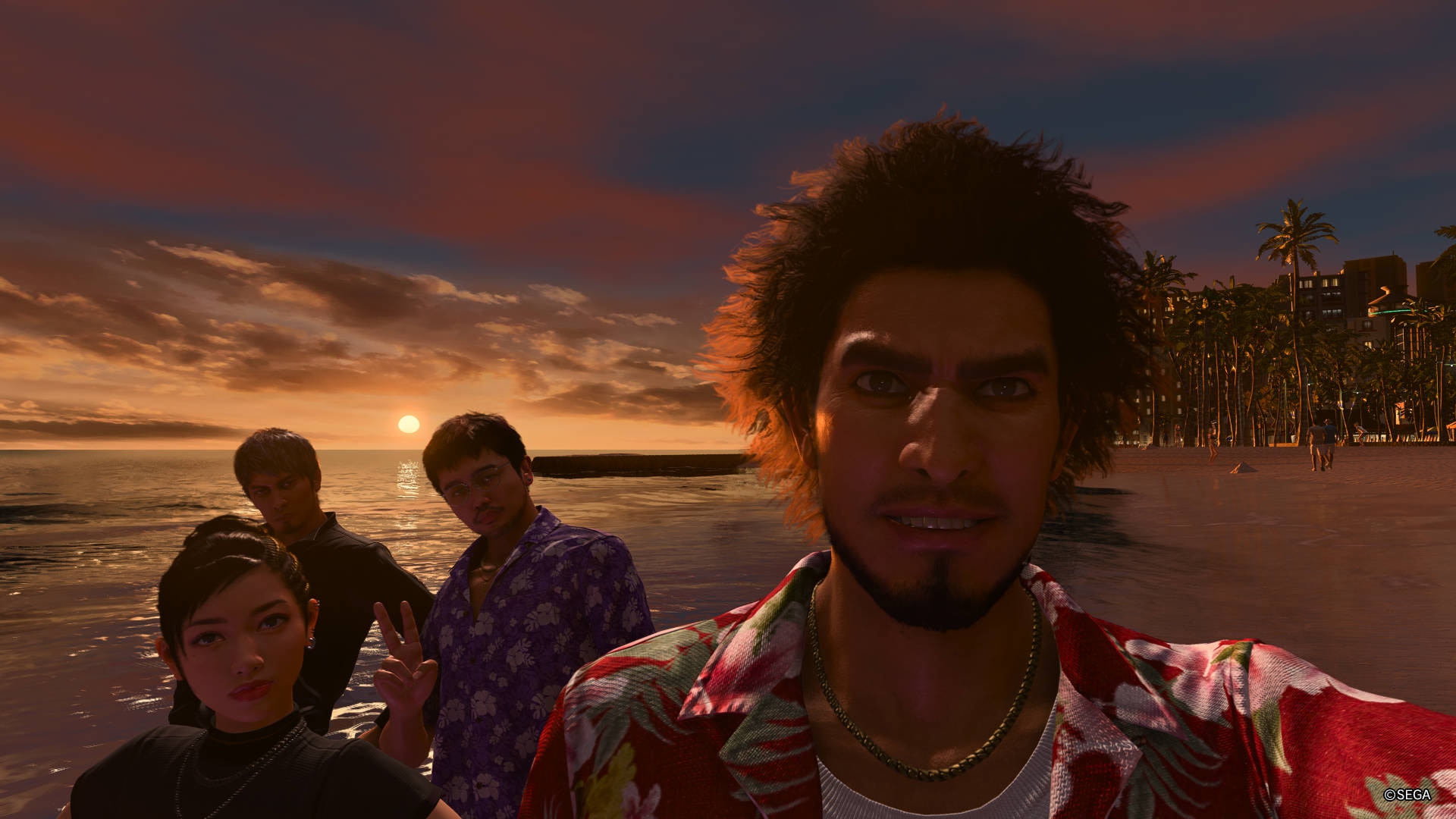
Like A Dragon: Infinite Wealth begins a few years after the events of the last game. Kasuga’s “Hero” days are over and hes settled down working at the job center for wayward ex-yakuza to get real work. The good times couldn’t last forever for him, and after he gets smeared by some slimy VTuber, he ends up unemployed once again.
Kasuga discovers a lead from his former commander about the whereabouts of his birth mother and heads to Hawaii to find answers. Along the way, he befriends a crooked cabbie, a duplicitous maid, a sexy Korean mobster, and the Dragon of Dojima himself; Kazuma Kiryu. Some allies from the last game eventually join, topping the total party at ten characters.
Kasuga’s quest to find his mom proves to be more complicated than anything he could have expected. The minute he touches down in Honolulu he gets set up and gets entangled in an elaborate criminal conspiracy. Like always, there is no telling who might backstab who, and who might actually be on the level. Sometimes the most harmless and innocent might be inhumanly evil and the most cruel looking men might be good all along.
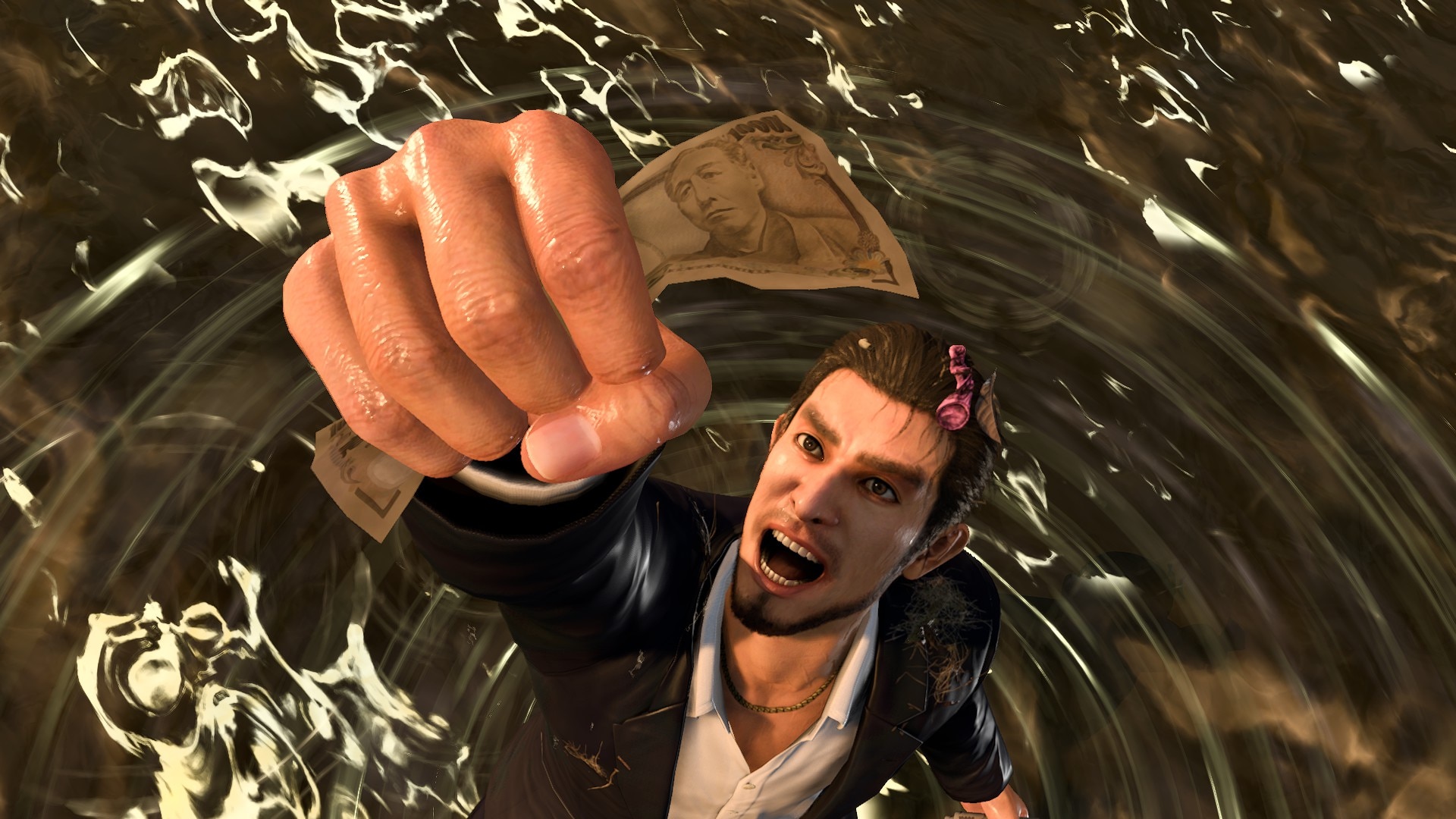
The story for Infinite Wealth is massive and epic. Not only is Honolulu one of the most densely packed and sizable locations in a Yakuza game, but it also features Kamurocho. The presentation is immaculate when the main story cutscenes play out—the ones where major plot sequences unfold are utterly lavish and feature some of the most convincing facial animations and lighting the franchise has ever had.
There are still the B-tier cutscenes where the cast is still voice-acted and the real-time character models are used. These are serviceable, and it’s understandable that a majority of the scenes play out like this because Infinite Wealth has hours of cutscenes, and it was likely unfeasible to have everything be A-tier. However, using generic NPCs during some of these scenes was a questionable choice, since they lack the detail of the main cast.
The C-tier cutscenes are less forgivable. These lack voice acting altogether and have very stiffly animated characters. These scenes resemble something from the PlayStation 2; there’s a lot of pantomiming of actions, low-quality NPC models, and no expressions. These are the moments that will stand out from the dazzling and slick-looking main quest which will last well over 60 hours. You’ll break 100 hours easy trying to do it all.
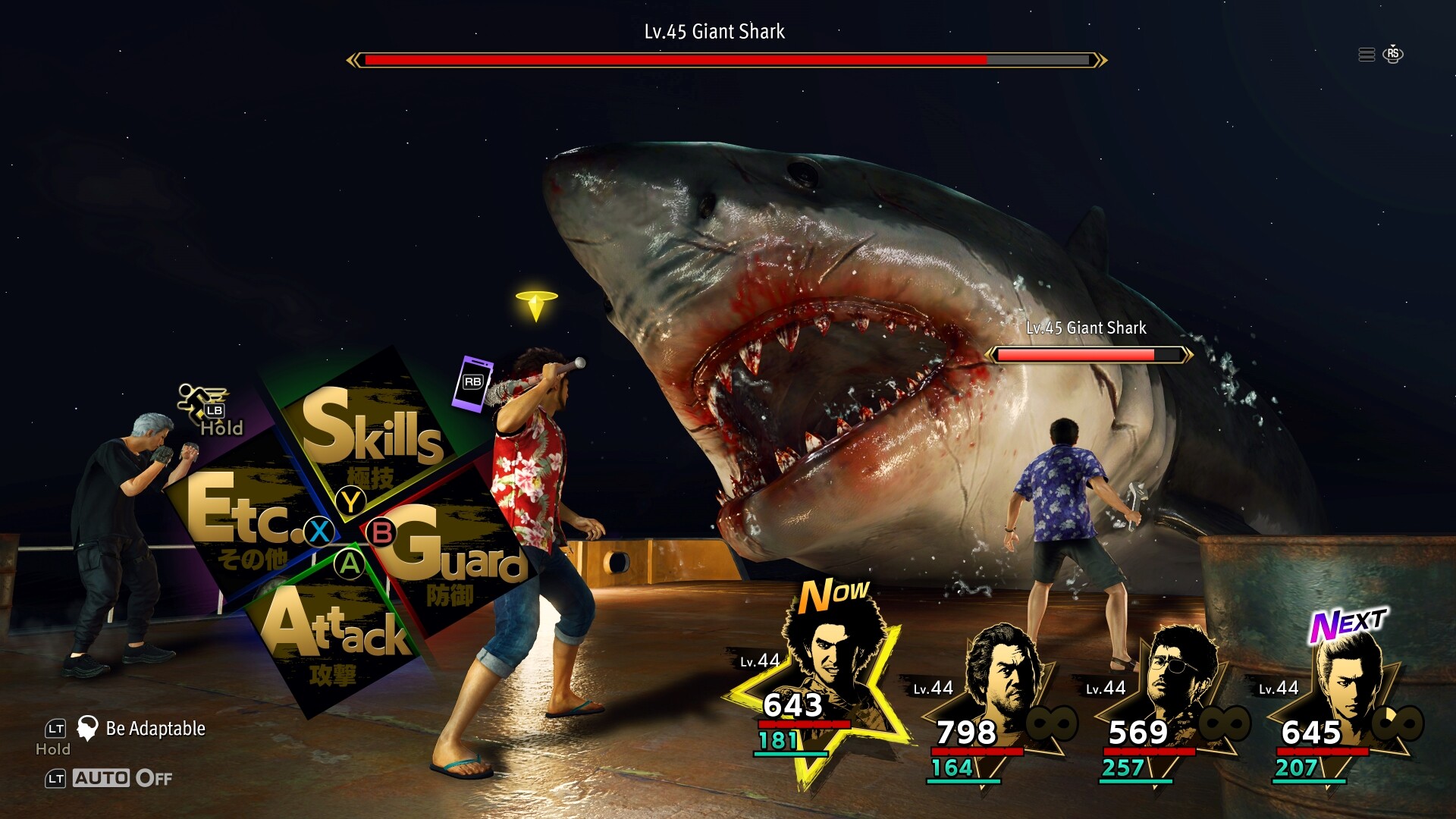
The main story is suitably grand and wrought with emotional catharsis. Like always, the drama is gripping and you feel like you must see it through to the end… so long as you don’t get distracted by the ridiculous amount of side stories, mini-games, and full-fledged games within this elephantine RPG.
There are two fishing games in Infinite Wealth, and one of them is an arcade-perfect port of Sega Bass Fishing, one of their greatest achievements of all time. There is SpikeOut, a severely underrated 3D beat ’em up that is similar to Dynamite Deka. Yet these arcade games are the small fries in Infinite Wealth; there is a variation of Crazy Taxi where Kasuga becomes an Uber Eats deliveryman where the action is as insane as the arcade game.
There is a Pokemon Snap-like photography mini-game where Kasuga photographs oiled up, muscular homosexuals humping the air and getting chased by dogs and policemen. All the mainstays like darts, even the two games that nobody will ever play (mahjong and shoji) are still here. They even managed to put an entire Pokemon league in this game.
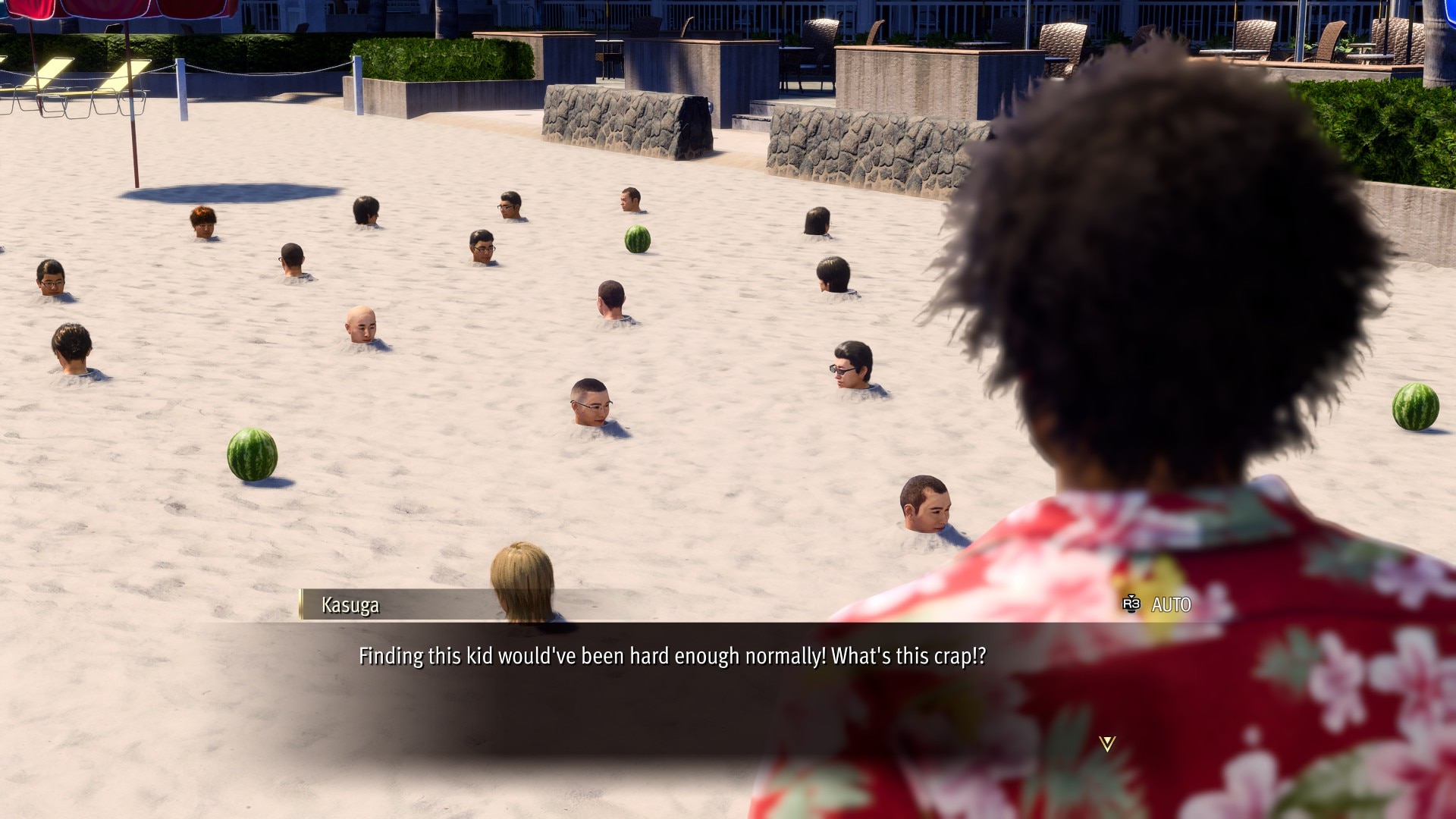
Yes, it’s true: Kasuga can capture “Sujimon,” which range from degenerate flashers to masked wrestlers to fat guys with pizza-shields. The Sujimon league has its own combat system, which is dramatically different from the standard combat. It’s much simpler and faster paced, but the depth of the Sujidex and recruitment process is a game in itself.
The Sujimon, food delivery, Sicko Snap, and all the arcade games are wonderfully implemented and add a ton of value to Infinite Wealth. However, they pale in comparison to Dondoko Island, which is such a fully featured game within the game that the developers gave it its own title screen.
Dondoko Island is Animal Crossing and has most of the features in it that veterans of that series would be accustomed to. Kasuga is tasked with building a resort on a deserted island and has to account for zoning the paths, ensure satisfaction for visitors, and collect blueprints to build accommodations and features for guests.
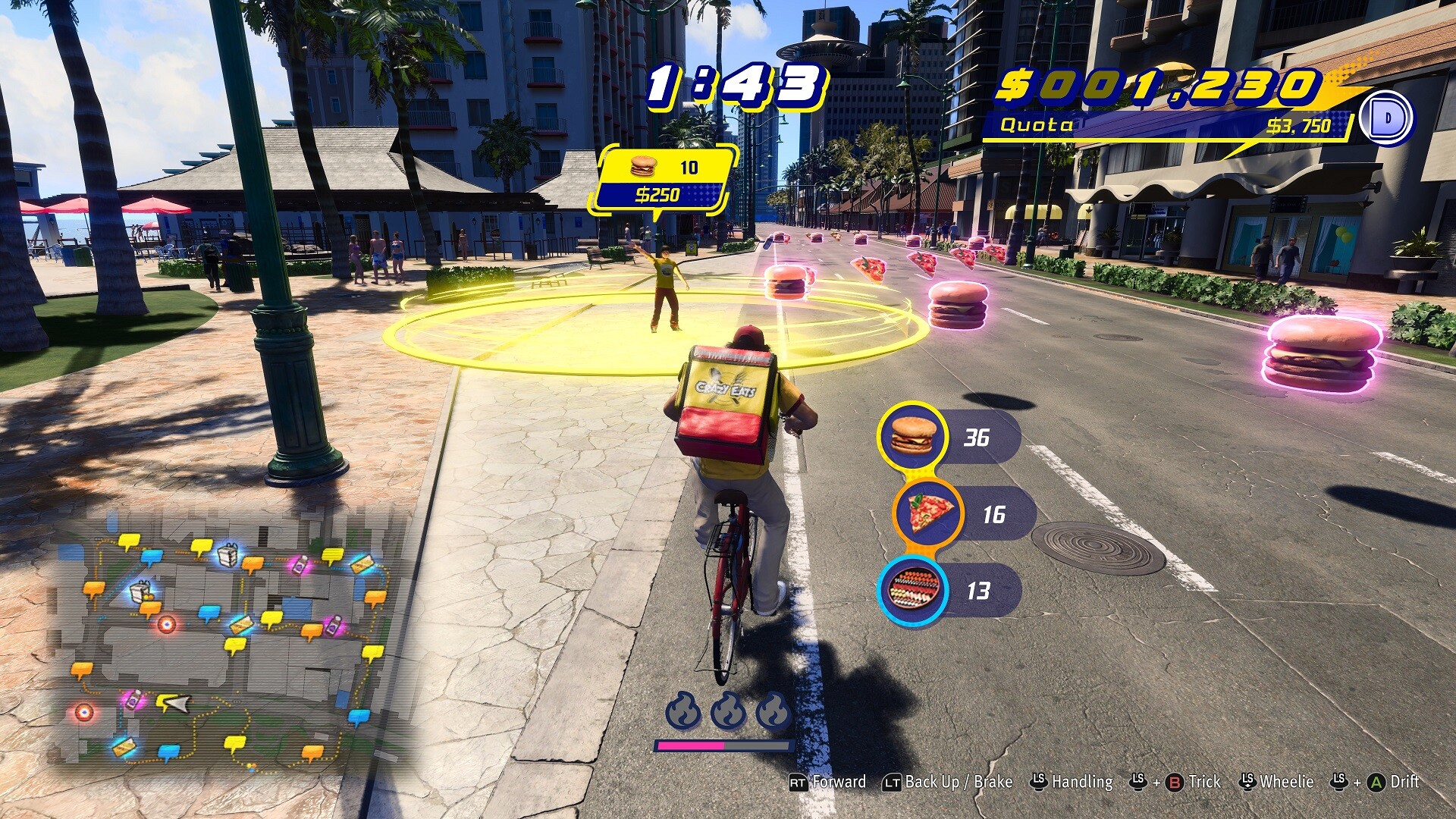
The amount of content in Infinite Wealth borders on being disgusting. You get a lot of bang for your buck and its evident that the team put everything they had into it. Yet, there are some aspects that are unforgivable. Locking new game plus, a feature that’s a series staple, behind a $19.99 paywall, is robbery.
Sega could have put Dondoko Island behind the paywall instead, and it would have been less offensive. New game plus is such a simple and basic mode that is a part of most RPGs.
Selling it in a DLC package is a scummy move that damages the replayability of the game. Without new game plus, Infinite Wealth feels incomplete in spite of the massive quantities of content.
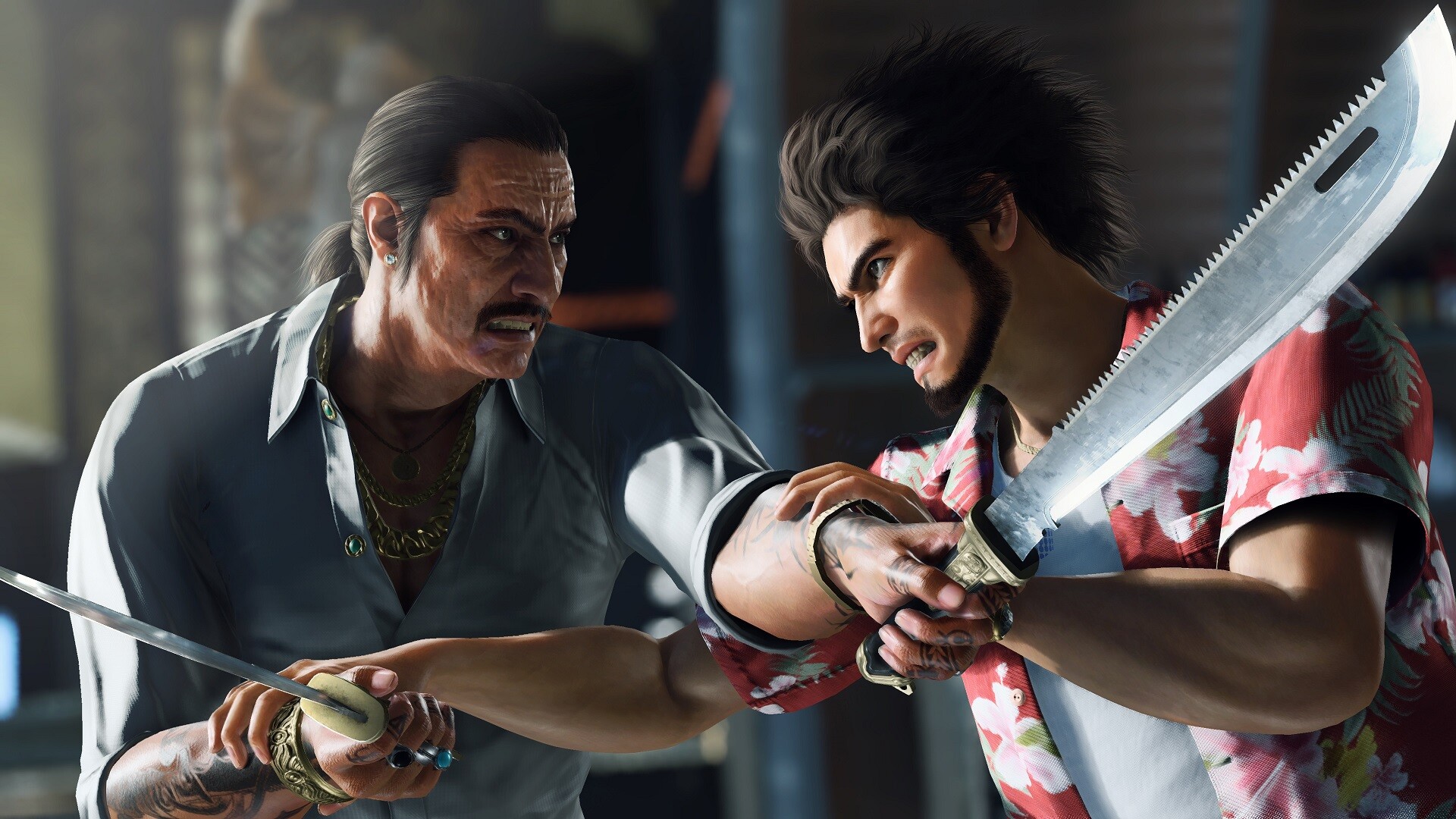
Other disastrous fumbles in Infinite Wealth is how the story handles the language barrier for Kasuga and Kiryu. Neither of these characters know English and about only 14% of Honolulu speak Japanese. In either the English dub or the original Japanese audio, the situation is handled poorly. This hurdle suggests that maybe the franchise should never be set outside of Japan.
Early on, the language barrier is a real issue for the characters to deal with. There are several plot points that revolve around it, but the writers regretfully spill the proverbial sand into the potato salad. This issue is conveniently dropped and downplayed because it would push the writers into a corner… until they decide to bring it up again. The lack of internal logic and consistency is frustrating and very distracting.
The only thing more distracting is Yong Yea as Kiryu, who sounds like a nasally geek trying to sound like an adult. Kiryu is in his 60s during the events of Infinite Wealth. His iconic Japanese voice is very deep and smooth, and he is an amazing singer. Yong is horribly miscast as the weathered and stoic legend. He might have worked in Yakuza 0 when Kiryu was in his 20s, but he does not fit the character at all and gives a generic performance.
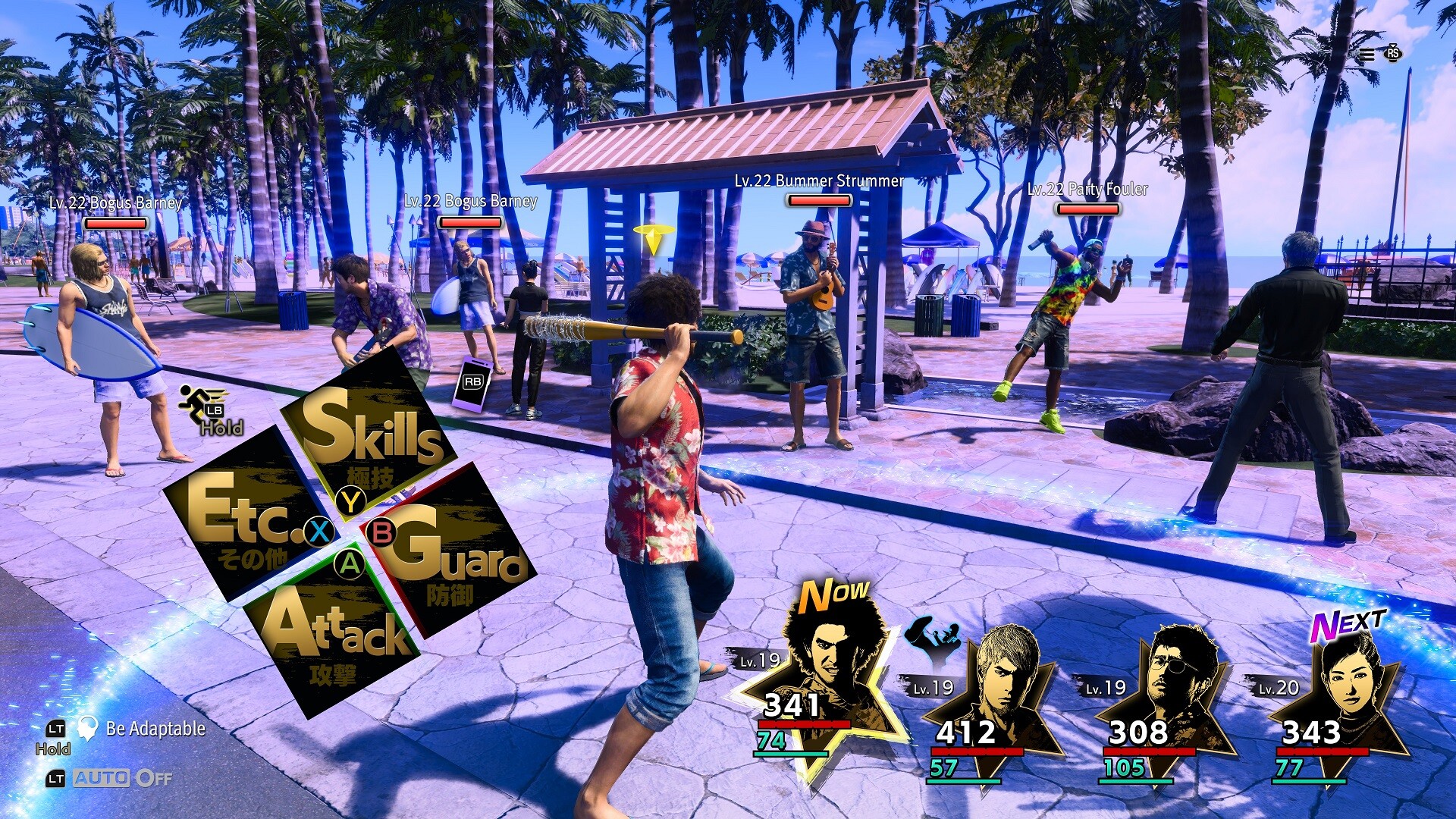
The combat has been slightly improved from the original. A lot of the same elements return, like the Poundmate summons, the timed blocks and QTE attacks, but new features like movement range and knock-back are major additions.
This is still a turn-based game, but being able to position the party during battle adds a new layer of depth and allows more flexible strategies. Gamers will be able to set up devastating chain reactions when knocking foes into other foes, or into the reach of a friendly who will contribute to the beating.
The job system returns, although it does take too long before the game makes it available. There are 14 chapters in Infinite Wealth and it isn’t until the fifth chapter when the party can make use of the Alo-Happy booth. Depending on how often you partake in sidestories, this can take tens of hours. By then, you’ll be gimping yourself when you change classes for the first time and will have to grind to get your new class up to speed.
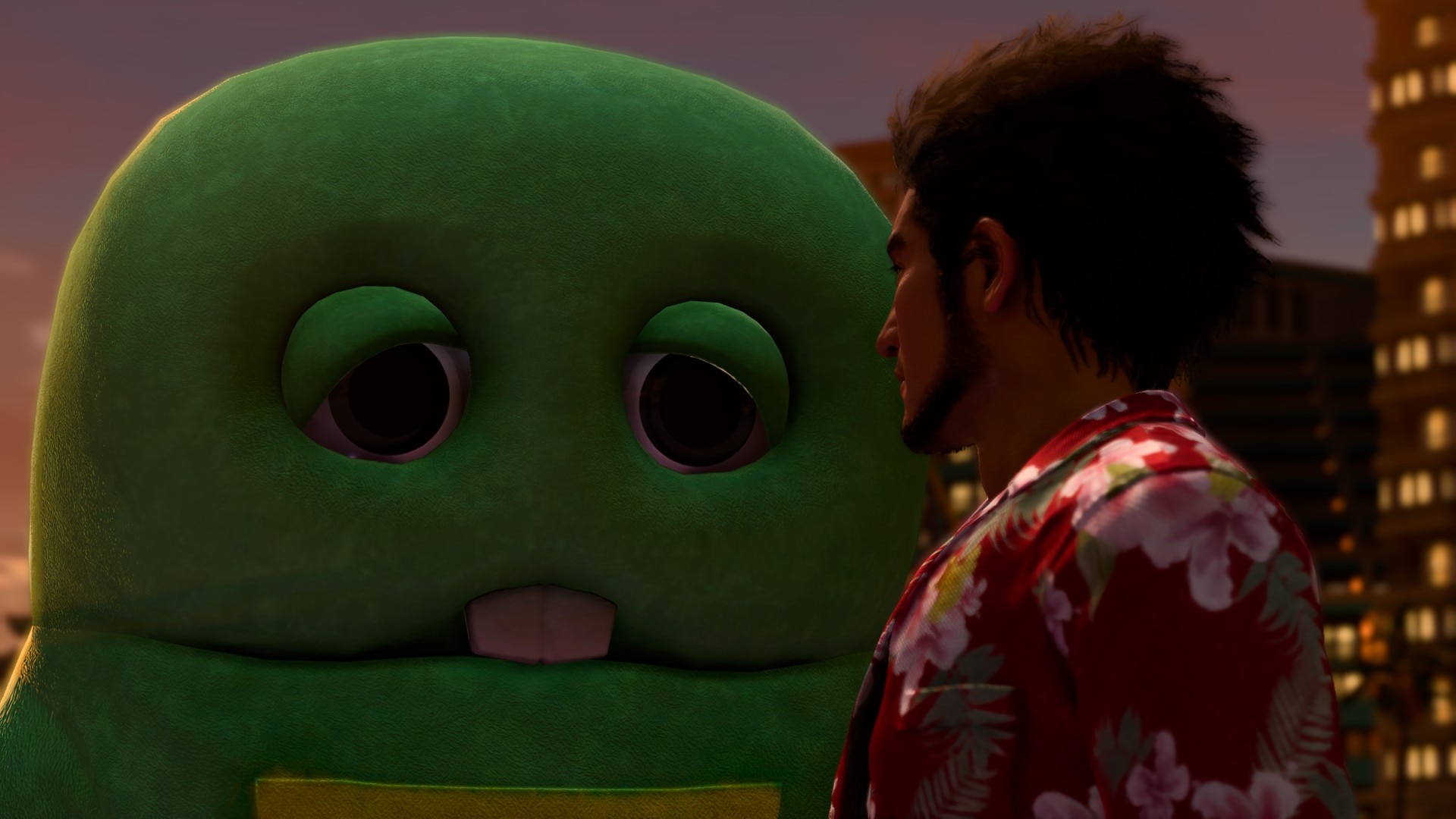
Like a Dragon: Infinite Wealth achieves tremendous success while simultaneously puzzling players with some frustrating decisions. Unlike its predecessor, which welcomed newcomers, Infinite Wealth assumes familiarity with Yakuza: Like a Dragon. Players who haven’t experienced Yakuza 6: Song of Life will miss major plot points, as Infinite Wealth resolves themes and loose ends from that game.
Yakuza: Like a Dragon stood strong on its own, bringing back Kiryu in Infinite Wealth feels unnecessary at this point. He carries baggage that overshadows Kasuga, potentially confusing players introduced through Like a Dragon, a game intended to launch a new chapter.
The inconsistent portrayal of the language barrier, Yong Yea’s portrayal of Kiryu, the outrageous NG+ paywall, and the reliance on prior entries for complete story comprehension, all indicate a potentially bleak future for the Yakuza series following Toshiro Nagoshi’s departure from Sega. At the very least, it is awesome to have an excellent port of Sega Bass Fishing.
Like A Dragon: Infinite Wealth was reviewed on PlayStation 5 using a copy purchased by Nichegamer. You can find additional information about Niche Gamer’s review/ethics policy here. Like A Dragon: Infinite Wealth is now available for Windows PC (via Steam), Xbox One, Xbox Series X|S, PlayStation 4, and PlayStation 5.
